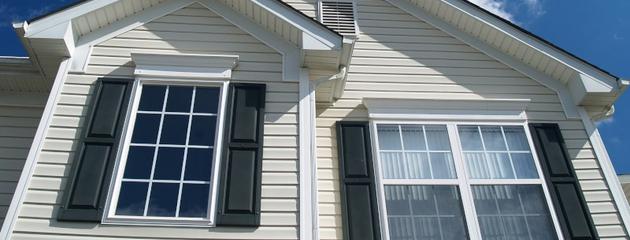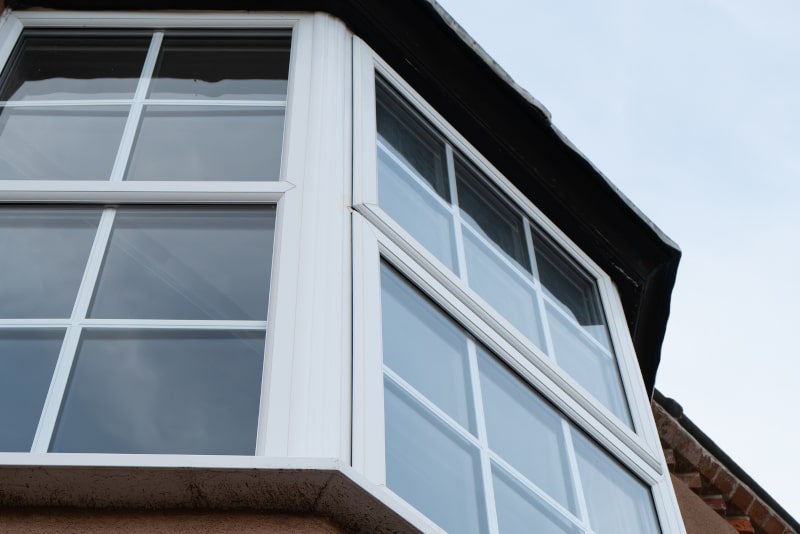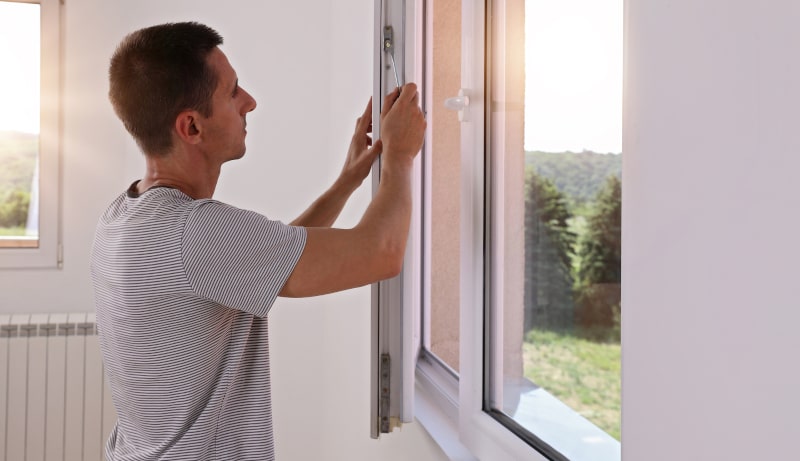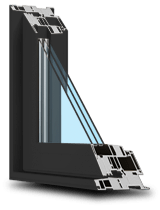A Homeowner's Guide to Vinyl Windows in Ontario: Benefits and Considerations

Key Takeaways
- Vinyl windows offer exceptional energy efficiency, making them particularly well-suited to Ontario's fluctuating climate.
- Compared to wood, aluminum, and fibreglass, vinyl provides a lower-cost, low-maintenance alternative with strong durability.
- Homeowners should prioritize Energy Star certification, strong warranties, and reputable manufacturers when choosing vinyl windows.
- Expert advice and local insight, especially from seasoned project managers, can significantly influence quality outcomes.
What are the main benefits of installing vinyl windows in Ontario homes?
Cold winters in Canada come with icy winds, freezing rain, and sub-zero temperatures — conditions that can quickly expose weaknesses in a home’s windows. That’s why energy-efficient design is essential. Vinyl windows have become a top choice for Canadian homeowners, offering reliable insulation, durability, and low maintenance. Let’s explore why they stand out.
Energy Efficiency Tailored for Harsh Climate
Ontario has noticeable seasonal temperature swings, from warm summers to cold winters. Vinyl windows with multi-chambered frames and Low-E coatings offer excellent thermal insulation, enabling them to handle these changes efficiently.
According to Natural Resources Canad a, windows can account for up to 25% of a home’s total heat loss, and well-insulated vinyl models can significantly reduce this. This means lower heating costs in winter, less cooling demand in summer, and performance that often meets or exceeds Energy Star Canada standards for Ontario’s Zone 2 and Zone 3.
Durable and Built to Last
Vinyl isn’t affected by moisture, which is crucial in a province where snowfall and spring thaws can cause wood to rot or warp. Unlike wood, vinyl doesn’t require repainting or resealing. It also resists corrosion, a significant issue for aluminum frames in coastal or environments exposed to road salt.
Here’s what Tony Wong, Project Manager at Canadian Choice Windows & Doors , says:
“Vinyl windows are designed with durability in mind. They don’t swell, crack, or chip. That means fewer replacements and longer performance.”
Weather-Resistance: A Must for Ontario
Ontario's weather is unpredictable. Vinyl windows with fusion-welded corners and double or triple-pane glazing are built to withstand everything from freezing rain to strong wind gusts. Many models include argon gas fills, which enhance insulation and reduce condensation.
Homeowners living in Lake-effect snow zones, such as the Niagara region or Georgian Bay, benefit from vinyl’s ability to keep interiors warm and reduce drafts even in storm-prone seasons.
Budget-Friendly Without Sacrificing Quality
Compared to other window materials, vinyl is often 30–50% cheaper than wood or fibreglass, according to data from HomeStars and the Canadian Home Builders’ Association. While affordability is a plus, vinyl doesn’t cut corners on performance.
How does vinyl window replacement compare to other materials?
Choosing between window materials isn’t just about aesthetics — it impacts energy bills, upkeep, and long-term value. Let’s dive into how vinyl compares to other popular materials: wood, aluminum, and fibreglass.
Vinyl vs. Wood
- Cost: Vinyl is significantly more affordable.
- Maintenance: Wood requires repainting and sealing; vinyl is virtually maintenance-free.
- Lifespan: Vinyl lasts 20–30 years; wood can last longer if maintained.
- Aesthetics: Wood wins on natural beauty, but now vinyl comes in faux wood finishes.
Wood appeals to heritage homeowners but struggles in humid or wet Ontario regions where rot and mould are concerns.
Vinyl vs. Aluminum
- Thermal Efficiency: Vinyl insulates better. Aluminum is a heat conductor.
- Durability: Both materials are durable, but aluminum can corrode in areas with high salt or moisture content.
- Noise Reduction: Vinyl offers better acoustic insulation.
Aluminum is suitable for commercial buildings or ultra-modern homes, but it can increase heating bills due to its poor insulation properties.
Vinyl vs. Fibreglass
- Cost: Fibreglass is 20–30% more expensive than vinyl.
- Strength: Fibreglass is stronger, though in many residential applications, its performance benefits may exceed typical requirements
- Installation: Vinyl is easier to install, which lowers labour costs.
Fibreglass offers excellent performance, but it is often not worth the premium for average homes.
Comparison Table
| Feature | Vinyl | Wood | Aluminium | Fibreglass |
|---|---|---|---|---|
| Lifespan | 20–30 years | 30–50 years | 25–30 years | 30–40 years |
| Maintenance | Low | High | Low–Medium | Low |
| Energy Efficiency | High | Medium | Low | High |
| Aesthetics | Customizable | Natural grain | Modern look | Smooth finish |
| Installation Ease | Easy | Moderate | Harder | Moderate |

Are Canadian vinyl window manufacturers better than imported brands?
When it comes to choosing between local and imported vinyl windows, the decision isn't just about price — it’s about performance, support, and long-term reliability. Let’s take a closer look at how Canadian manufacturers stack up against foreign brands.
Material Quality and Climate Suitability
Canadian manufacturers build windows with Ontario's unique climate challenges in mind. From deep freezes to high humidity, local companies engineer products that perform under stress.
- Imported brands may use materials better suited to milder climates.
- Local manufacturers utilize high-performance vinyl blends, fusion-welded seams, and glazing options specifically designed for Canadian winters.
Availability and Support
Working with a Canadian company means:
- Faster delivery times
- Better after-sales support
- Easier warranty claims
In contrast, imported windows may be delayed by customs or shipping issues. You may also encounter foreign customer service centers or limited local installation support.
Helen Sin comments: “When homeowners need service or part replacements, dealing with a local manufacturer makes a huge difference in turnaround time and peace of mind.”
Environmental and Economic Impact
Buying local has a double benefit:
- Lower carbon footprint (reduced shipping emissions)
- Support for Canadian jobs and the economy
Cost and Value
Imported windows may sometimes be less expensive, but this is often due to lower build standards or fewer features. The slightly higher upfront cost of local products frequently means fewer repairs and a longer lifespan.
Local vs. Imported Vinyl Windows
| Feature | Canadian Manufacturers | Imported Brands |
|---|---|---|
| Climate Suitability | High – built for Canada | Variable – may not suit Ontario |
| Availability | Fast, local delivery | Potential delays |
| Warranty Support | Local and accessible | May require overseas contact |
| Environmental Impact | Lower emissions, local jobs | Higher shipping emissions |
| Customization | Broad local options | May be limited |
| Cost | Slightly higher upfront | Sometimes lower, less durable |
While some imported brands offer competitive pricing, the long-term benefits of Canadian-made vinyl windows — including tailored performance, easier servicing, and better environmental standards — make them a smarter investment for Ontario homeowners.

What energy efficiency standards should vinyl windows meet?
Choosing a vinyl window isn’t just about the look — it’s also about performance metrics, such as U-factor, R-value, and code compliance, that affect both comfort and costs.
Understanding Key Ratings
- U-Factor: Measures heat transfer (lower = better). For Ontario, target a value of ≤ 1.22 W/m²·K.
- R-Value: Measures resistance to heat flow (higher = better). Typical double-pane windows have an R-value of R-3 to R-4; triple-pane windows can reach an R-value of R-5 or higher.
- Energy Star Certification: Ensures performance is tested and certified for Canadian climate zones.
Ontario Building Code Compliance
According to the Ontario Building Code, replacement windows must:
- Meet minimum U-factor of 1.4 W/m²·K or better
- Be Energy Star certified for Climate Zone 2 or 3, depending on location.
- Have proper installation and sealing to prevent thermal bridging.
Why These Metrics Matter
- Lower U-factors and higher R-values directly reduce heating and cooling loads.
- Certified windows often include argon or krypton gas between panes to slow heat transfer.
- Improper installation, even with high-rated windows, can result in energy loss and condensation.
Verified Sources for Standards
Pro Insight: Collaborate with certified installers who are knowledgeable about Ontario’s codes to ensure your investment meets all requirements and qualifies for government incentives.

What common mistakes should homeowners avoid during vinyl window replacement?
Homeowners are often tempted by low prices or promises of fast installation, but vinyl window replacement is a long-term investment. Many homeowners unintentionally compromise performance and value by overlooking key factors.
Mistake #1: Choosing the Lowest Price Without Context
Cheaper isn’t always better. While vinyl windows are generally affordable, going for the absolute lowest bid can result in subpar materials or poor installation.
- Very low-cost quotes may exclude important features such as Low-E coatings or argon gas fills.
- Installers may cut corners — resulting in drafts, leaks, or failed seals within a few seasons.
Tony Wong shares: “We’ve replaced countless windows that were barely five years old — all because the homeowner picked the lowest quote without checking specs or installation quality.”
Mistake #2: Ignoring Online Reviews and Local Reputation
Reviews offer crucial insight into customer satisfaction, installation quality, and after-sales service.
- Trust verified Google Reviews, HomeStars, and BBB ratings.
- Look for consistent feedback regarding post-installation service, particularly with respect to warranty claims.
Mistake #3: Skipping Warranty Details
Many homeowners assume that all warranties are equal — they're not.
- Read the fine print: Is it transferable? Does it cover labour or just materials?
- Some manufacturers only offer partial coverage beyond 5–10 years.
Helen Sin notes: “A great window is only as good as the warranty behind it. Make sure you understand what’s covered and for how long.”
Other Mistakes to Avoid
- Failing to verify the contractor’s insurance or certification
- Ignoring Energy Star zone ratings (some products aren’t rated for Ontario)
- Overlooking condensation resistance and air infiltration ratings
By staying vigilant during the selection process and avoiding these common mistakes, homeowners can ensure their investment lasts — and performs optimally.
How does Canadian Choice Windows & Doors™ compare with other window manufacturers?
Choosing a vinyl window provider isn’t just about what’s in the catalogue. It’s about total value — product quality, service, warranty, and customer satisfaction. So how does Canadian Choice stack up?
Competitive Overview
Let’s compare Canadian Choice with some well-known competitors: Pella, JELD-WEN, and Window City.
| Feature | Canadian Choice | Pella | JELD-WEN | Window City |
|---|---|---|---|---|
| Made for Canada | Yes – climate-specific | Partial | Some models | Yes |
| Warranty | Lifetime transferable | Limited (10–20 years) | Limited (15 years) | Lifetime (some parts) |
| Custom Options | Extensive | Good | Moderate | Extensive |
| Energy Star Rated | Yes – Zone 2 & 3 | Yes | Yes | Yes |
| Customer Reviews | 4.5 on Google & HomeStars | 4.2 on Trustpilot | 3.9 mixed reviews | 4.3 on Google |
| Installation | In-house certified teams | Third-party contractors | Retail-based installers | Dealer-installed |
Final Thought
Helen Sin emphasizes: “We work directly with Ontario homeowners. Our design consultations, custom builds, and in-house installers are what set us apart from volume brands.”
If you're prioritizing climate-fit, warranty strength, and local service, Canadian Choice offers one of the most competitive value packages in the country.
What are the final considerations before choosing vinyl windows in Ontario?
After comparing materials, reviewing feedback, and collecting quotes, homeowners face the final decision point. But how do you make that final call?
Recap: Core Evaluation Points
- Climate Compatibility: Ensure Energy Star rating fits Ontario’s zone.
- Installation Quality: Certified, insured, experienced crews only.
- Warranty: Prefer lifetime, transferable warranties.
- Reviews: Check Google, BBB, HomeStars.
- Customization: Prioritize manufacturers who offer flexible styles.
Choosing vinyl windows in Ontario isn’t just a home upgrade — it’s a strategic investment in comfort, efficiency, and property value. With the right manufacturer, a verified installer, and proper knowledge, your windows can last for decades, reduce your energy bills, and withstand extreme weather conditions.
1000’s of Colours & Textured Finishes
Transform your home from ordinary to extraordinary with our new coloured and non-glare textured finishes. Available in a wide array of colours as well as custom matched colours for your very own personalized design.
Our Most Popular Replacement Window Colours:










